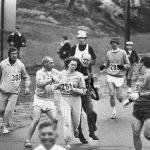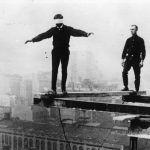Few images encapsulate the frenzy of youth and pop culture like this iconic photograph of police struggling to hold back a crowd of passionate fans.
Taken during the height of Beatlemania in the 1960s, this snapshot vividly reminds us of a time when The Beatles’ global fame shook the world. Let’s discover the story behind the photo.
The making of the photo
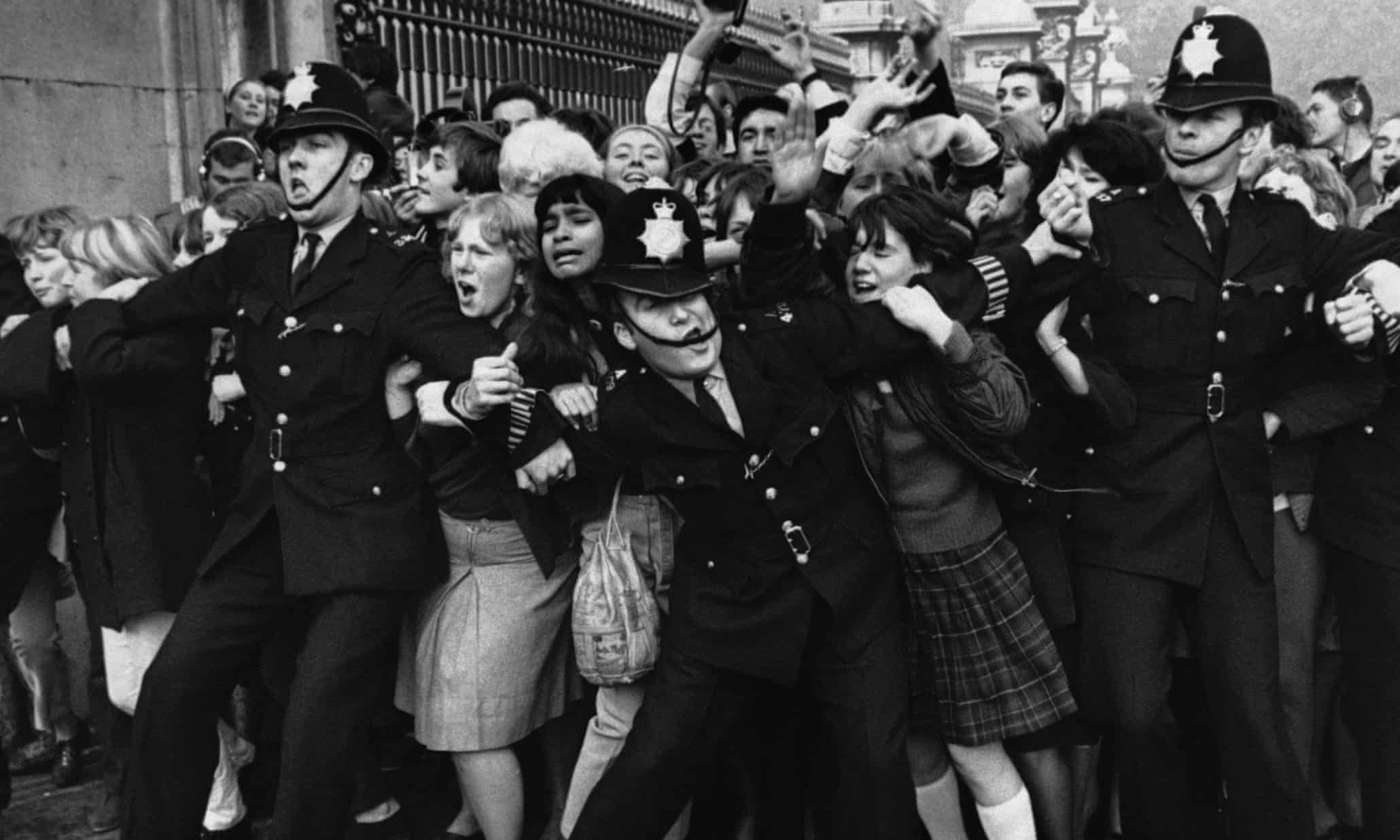
The 26 October 1965 was an important moment in British and pop culture history. On that day, The Beatles were awarded the MBE (Member of the British Empire) by Queen Elizabeth II, a rare honor for musicians.
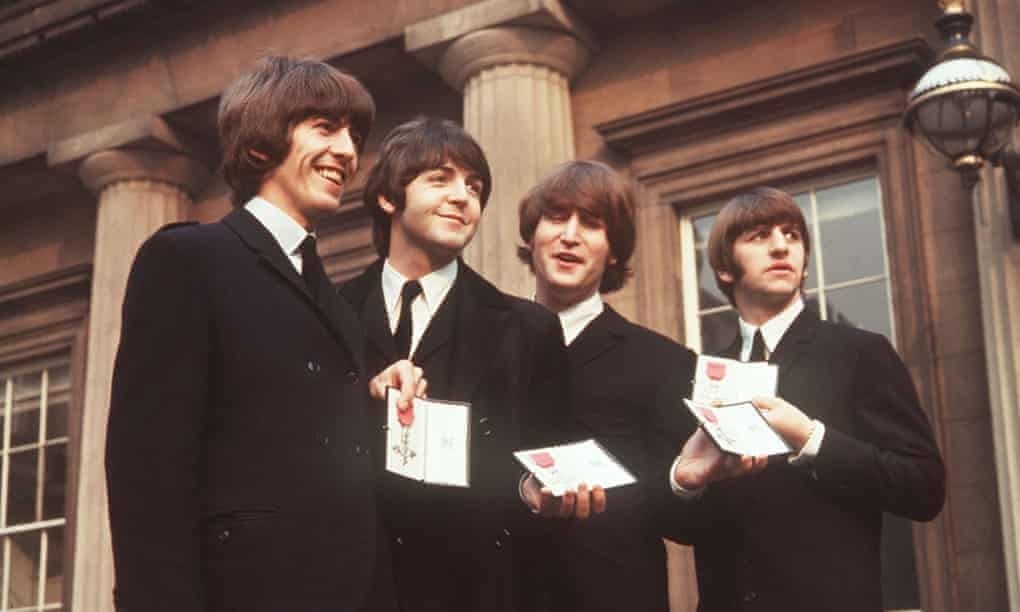
Fans had gathered outside Buckingham Palace from early morning, hoping to see John, Paul, George, and Ringo as they arrived for the ceremony. The crowd was full of excitement, and young fans pushed forward, eager to get closer to their idols.
The police struggled to control the massive crowd, and photographers captured this unforgettable moment.
The rise of Beatlemania
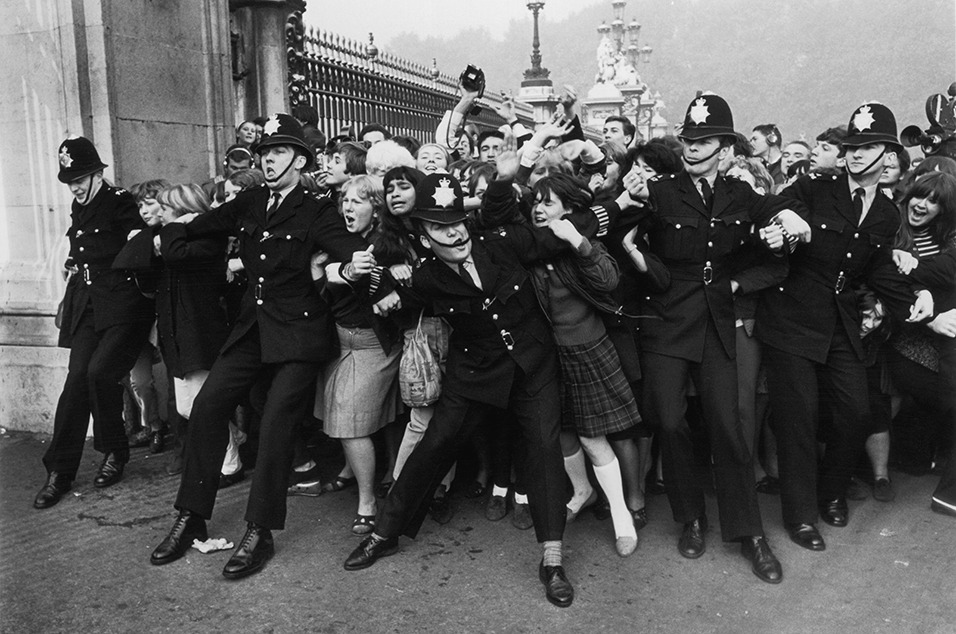
In the early 1960s, The Beatles quickly rose to superstardom, capturing the hearts of fans worldwide. Their music, infectious charm and unique style made them a phenomenon, unlike anything the world had seen before.
The frenzy, later dubbed “Beatlemania,” led to fans mobbing them at every appearance. The photo in question, where police struggled to hold back waves of screaming admirers, showcases just how intense their popularity became.
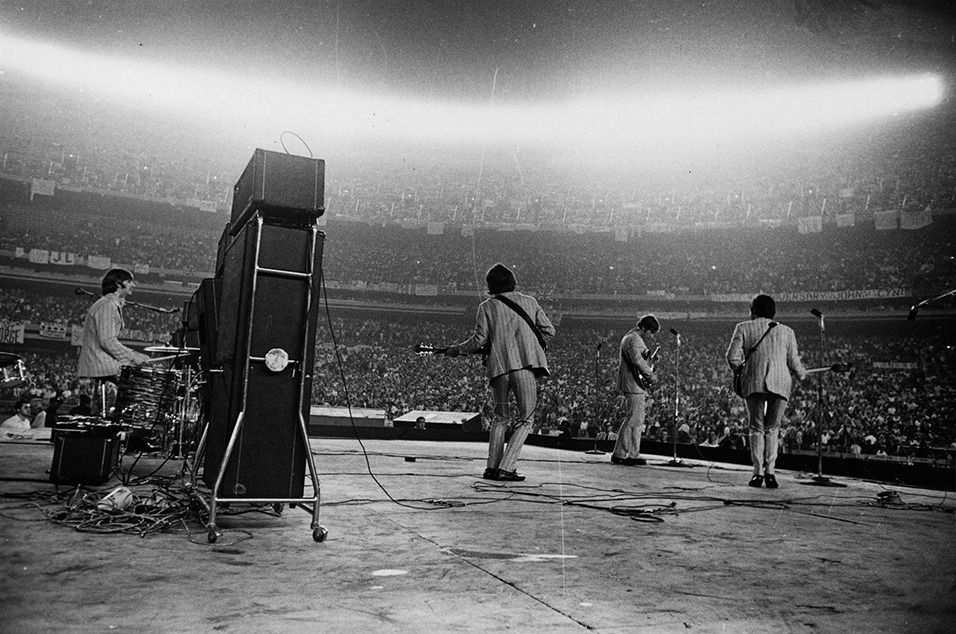
John Lennon once remarked, “We were just four guys. But all of a sudden, people wanted to touch us, hold us, and even fainted at the sight of us.”
This hysteria grew to unimaginable proportions, particularly during public appearances like the one captured in the photograph.
The Beatles: A symbol of cultural shift
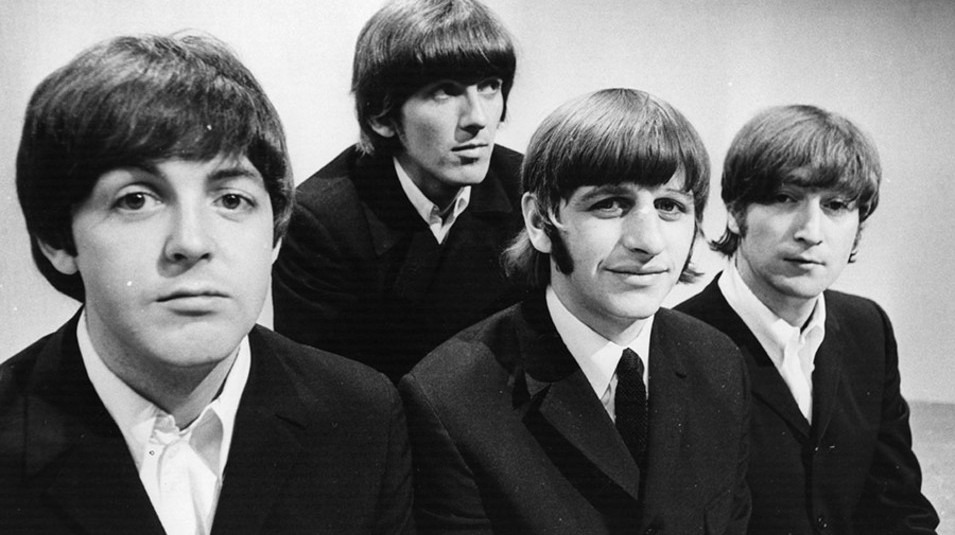
The Beatles’ impact went beyond music; they sparked a cultural revolution that challenged societal norms and empowered youth. Their global influence in the 1960s symbolized a rebellious energy, where young people sought freedom through movements in music, fashion, and politics.
The Beatles were the first pop band to perform in sports stadiums, a necessity due to their massive fanbase. Their concerts were often chaotic, with poor sound and wild crowds.
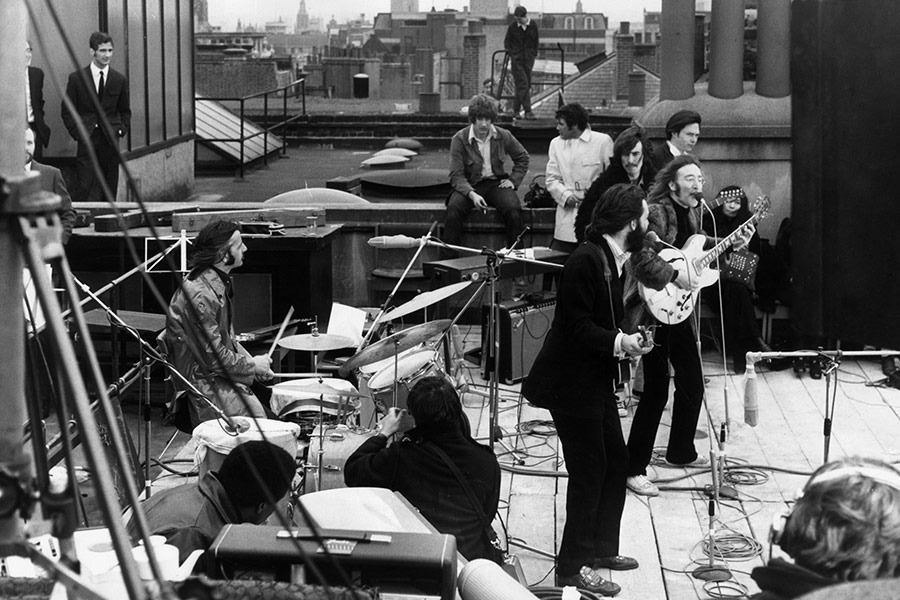
The band also stood for social justice, refusing to play segregated shows in the U.S., as McCartney put it, “It’s silly.”
Despite controversies like John Lennon’s “more popular than Jesus” remark, they shaped pop culture and pushed musical boundaries with experimental albums like Sgt. Pepper.
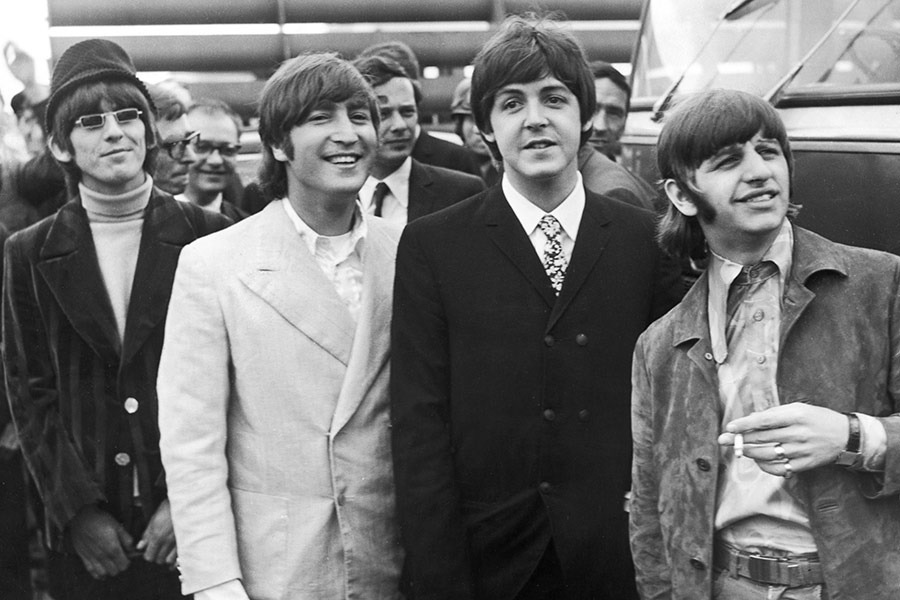
As Dan Stubbs, a writer and music critic, notes in his article, “The Beatles didn’t just play music, they spearheaded a cultural revolution, paving the way for civil rights, gender equality, and breaking down barriers in art.”
The excitement seen in this photograph was part of that broader wave of change.
Police vs. Pop Culture: The struggle for control
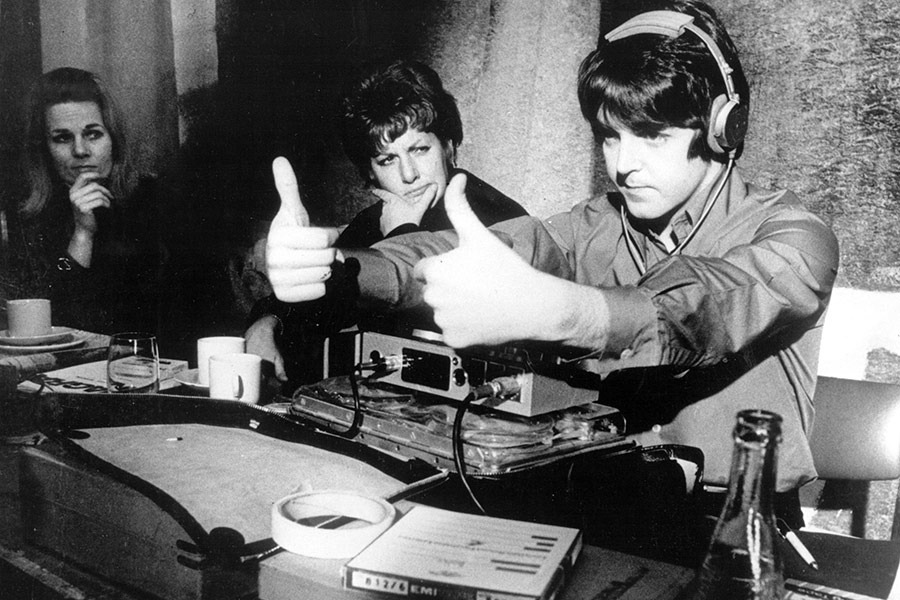
The image of police officers struggling to maintain order speaks to the tension between authority and pop culture during this period. Law enforcement was often caught off guard by the sheer passion and numbers of Beatles fans.
Events would often spiral into chaos, with security overwhelmed by thousands of eager admirers trying to get close to their idols.
This tension was felt globally, as the powers that be tried to contain not just crowds but the greater societal shifts represented by the youth rebellion.
As one officer involved in a Beatles concert security detail said, “We’d never seen anything like it. The crowd just surged. It was like trying to hold back a tidal wave.”

